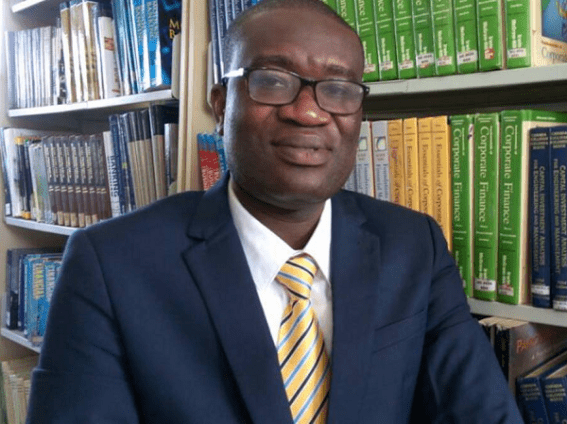A Senior Finance Lecturer at the University of Ghana Business School, Dr. Benjamin Amoah, has forecast it will take not more than two years for banks to start paying dividend to shareholders after the shocks from the Domestic Debt Exchange Programme (DDEP)
His prediction follows a directive by the Bank of Ghana prohibiting the payment of dividends due to the programme.
According to him, the move by the Central Bank is in the right direction since it will help banks present plans to meet the recapitalization schedule.
The Bank of Ghana argued that, further incentives to banks to expedite the process will include restrictions in risk exposures, and enhanced monitoring for those that do not meet minimum Capital Adequacy Ratio, and support for early recapitalization from the Ghana Financial Stability Fund (GFSF).
It explained that, any government support for recapitalization will be designed to incentivize private capital injection and will be conditional on reforms to improve long-term profitability.
Reacting to this development, Dr. Amoah appealed to shareholders to exercise restraint as good days are yet to come.
“If for a year or two in the face of the current difficulty, you are a bank shareholder or owner and you’re being tasked to hold on, and get what is deservedly yours, I don’t think it should hurt. They should be patient, good days are yet to come”, he advised.
Dr. Amoah added that the decision will help restore stability and resilience in the banking sector.
He is optimistic the sector will soon see a rebound since banks play crucial intermediary role in the distribution of money.
He recalled that the economy has gone through such turmoil and has recovered from the shocks.
“We have had instances like this in the past in 2018 during the banking sector clean-up. A similar directive came. We saw a resilient and robust banking system later”, he stressed.
Banks told to submit recapitalization plans by September 2023
The Bank of Ghana gave banks up to the end of September 2023 to provide their recapitalization plans.
This follows the impact of the Domestic Debt Exchange Programme Domestic Debt Exchange and the challenging operating environment that has eroded the minimum capital of some banks.
According to the Governor of the Bank of Ghana, Dr. Ernest Addison, the regulator will ensure all banks comply.
He pointed out that the banks minimum capital requirement will be increased from the current ¢400 million.
Responding to a question at the Monetary Policy Committee of the Bank of Ghana press briefing, the Governor of the Bank of Ghana, Dr. Ernest Addison, said “The impact of the exchange has been to reduce the capital buffers of banks. So if you look at the analysis that was done when we take cognizance of the three percent additional buffer the banks will need to add up to their capital”.
Latest Stories
-
Oklahoma City Thunder beats Indiana Pacers to win first NBA title
11 minutes -
Today’s Front pages: Monday, June 23, 2025
37 minutes -
World Refugee Day: World Vision Ghana advocates empathy for refugee children
60 minutes -
NPA acting CEO assures nation of 2-month fuel reserve amid global uncertainties
1 hour -
Suspected suicide bomber kills 12 in Nigeria’s Borno state
1 hour -
Customs cautions public against importing vehicles without manifest to Ghana
2 hours -
Many children do not know they have eye problems – Coordinator
2 hours -
Ghana welcomes Europe-Iran diplomatic thaw, urges Israel to join talks
2 hours -
Let us unite for victory – Bryan Acheampong urges NPP
2 hours -
Kwesi Pratt Jnr endorses incumbent GJA leadership ahead of crucial elections
2 hours -
SHEQ-PA Ghana champions sustainability at UMaT with plastic receptacle donation on World Environment Day
2 hours -
CCMA to demolish all dilapidated buildings in Cape Coast – Mayor
2 hours -
Global south leaders call for bold rethink of democratic futures at high-level Africa dialogue
2 hours -
Tunisia sentences ex-President Marzouki to 22 years in absentia
3 hours -
New disability hub in Ho offers life-changing support for residents
3 hours

